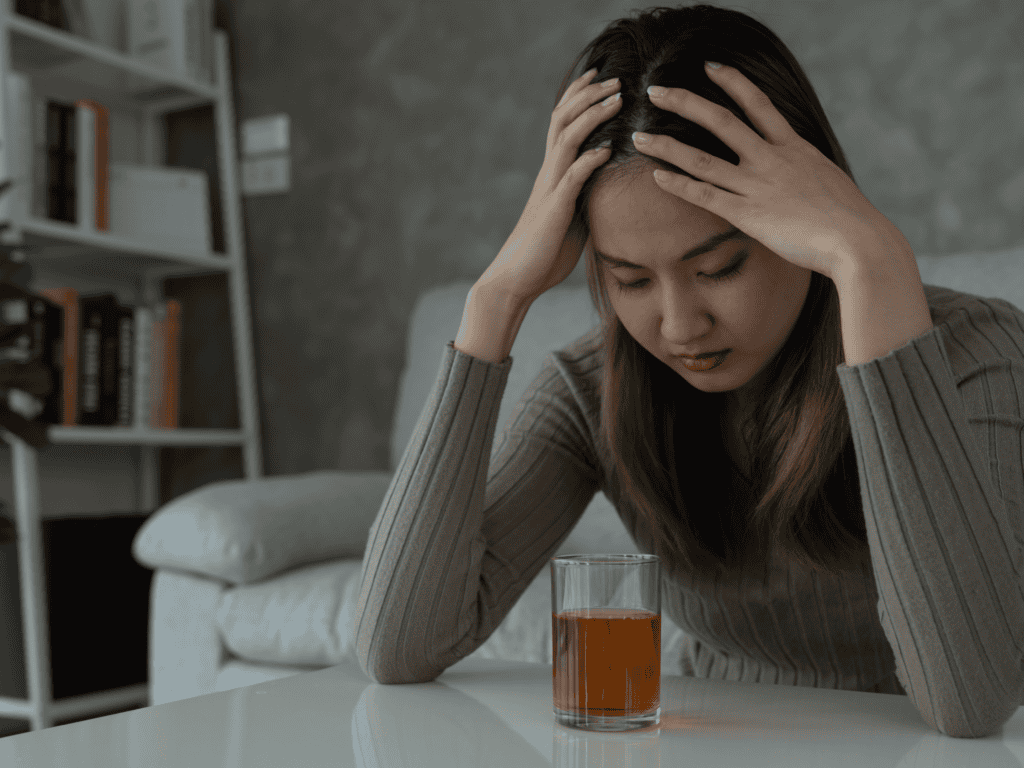What is Chronic Alcoholism?
Chronic alcoholism, also known as alcohol use disorder (AUD), is a medical condition characterized by an inability to control or stop drinking despite its negative impact on various aspects of life. It is a progressive disease that can lead to severe health, social, and psychological problems.
One commonality of chronic alcoholism is binge drinking, where an individual consumes a large amount of alcohol in a short period, leading to a spike in blood alcohol concentration (BAC). This pattern of heavy drinking can significantly increase the risk of developing an alcohol dependence, where the body becomes reliant on alcohol to function normally.
Substance abuse, including the misuse of alcohol, often starts with occasional excessive consumption of alcoholic drinks but can escalate into a more serious issue over time. When someone drinks too much alcohol regularly, it can cause changes in the brain, leading to problematic alcohol use. This means that the person continues to drink despite facing negative consequences such as health problems, relationship issues, and difficulties at work or school.
Heavy drinking is defined by the Centers for Disease Control and Prevention (CDC) as consuming more than eight drinks per week for women and more than 15 drinks per week for men. This level of consumption is dangerous and can lead to chronic health issues, including liver disease, cardiovascular problems, and an increased risk of certain cancers.
Excessive alcohol intake can also impair judgment and coordination, increasing the likelihood of accidents and injuries. People with chronic alcoholism may find it difficult to fulfill their daily responsibilities, and their relationships with family and friends may suffer as a result.
Recognizing the signs of chronic alcoholism and understanding the risks associated with consuming too many alcoholic beverages are crucial steps in addressing and treating this condition. Treatment options include detox, counseling, medication, and support groups, which can help individuals regain control over their lives and work towards sobriety.

How Do I Know If My Drinking Is Unhealthy?
Determining if you consume alcohol at an unhealthy rate or amount can be challenging, but there are clear indicators that can help you assess your situation. The Substance Abuse and Mental Health Services Administration (SAMHSA) provides guidelines to help identify problematic drinking patterns and signs of alcohol use disorder.
One of the key factors in assessing your drinking is the frequency and amount of alcohol you consume. Occasional drinking, such as having a drink of alcohol at social gatherings, is generally considered normal if done in moderation. However, binge drinking, defined by the National Institute on Alcohol Abuse and Alcoholism (NIAAA) as consuming five or more drinks in about two hours for men or four or more drinks for women, can be a sign of excessive alcohol use. Regularly engaging in binge drinking can increase your risk of developing AUD.
Alcohol use disorder can be classified as mild, moderate, or severe, depending on the number of criteria met. These criteria include the inability to control the consumption of alcohol, persistent desire or unsuccessful efforts to cut down or stop drinking, and continuing to drink alcohol despite knowing the problems it causes. Indications that you cannot control alcohol use include drinking more than intended or being unable to stop once you begin drinking.
Effects of Alcohol Use Disorder on Daily Life
Another factor to consider is how your drinking affects your daily life. Excessive alcohol use can lead to an impaired ability to fulfill responsibilities at work, school, or home. It can also negatively contribute to other mental health problems, such as anxiety and depression. If your drinking habits cause problems in your personal relationships or lead to legal issues, it’s a strong indication that your alcohol use is problematic.
It’s also important to consider whether you are drinking in a way consistent with legal guidelines. In many countries, the legal drinking age is set to prevent underage drinking and its associated risks. Drinking before reaching the legal drinking age or engaging in heavy drinking as a young adult can increase the likelihood of developing unhealthy habits later in life.
If you suspect that your drinking may be unhealthy, consider seeking help from a healthcare professional. They can provide support and resources to help you better understand your alcohol use and take steps to control or reduce your consumption of alcohol. Remember, recognizing the problem is the first step toward making positive changes for your health and well-being.
Symptoms of Alcohol Use Disorder
An alcohol use disorder is a chronic condition that can have severe health consequences. Recognizing the symptoms early can help prevent the adverse effects of excessive alcohol use. Binge drinking is defined as consuming five or more drinks for men or four or more drinks for women in about two hours. Chronic alcohol consumption can lead to an alcohol use disorder, which is characterized by several symptoms:
- Inability to control drinking: Frequent excessive drinking despite efforts to cut down or stop.
- Strong cravings: Persistent urges or cravings to drink alcohol.
- Tolerance: Needing to drink more alcohol to achieve the same effects.
- Withdrawal symptoms: Experiencing symptoms such as nausea, sweating, or shaking when not drinking.
- Neglecting responsibilities: Failing to fulfill work, school, or home obligations due to drinking.
- Continued use despite problems: Drinking even when it causes or exacerbates physical or mental issues.
- Unhealthy alcohol patterns: Drinking in situations where it is physically dangerous, such as driving.
- Interpersonal issues: Continuing to drink despite problems with family or friends.
- Other mental health issues: Experiencing anxiety, depression, or other mental issues related to drinking.
- High blood pressure: Developing hypertension due to chronic alcohol use.
- Adverse consequences: Facing legal, financial, or social issues because of drinking.
Alcohol Withdrawal Symptoms
When someone with an alcohol use disorder stops drinking, they may experience challenging symptoms. These symptoms can range from mild to severe and can be dangerous if not properly managed. Excessive alcohol use can lead to dependence, making withdrawal a challenging process. Recognizing these symptoms is crucial for seeking appropriate help:
- Anxiety: Feeling nervous or anxious when not drinking.
- Tremors: Shaking hands or body, especially in the morning.
- Sweating: Excessive sweating even in cool environments.
- Nausea and Vomiting: Feeling sick to the stomach and vomiting.
- Headache: Experiencing frequent headaches.
- Insomnia: Difficulty falling or staying asleep.
- Fatigue: Feeling extremely tired or lethargic.
- Irritability: Becoming easily irritated or agitated.
- High blood pressure: Increased blood pressure during withdrawal.
- Hallucinations: Seeing or hearing things that are not there in severe cases.
- Seizures: Experiencing convulsions, which can be life-threatening.
- Weakened immune system: Increased susceptibility to infections.
Excessive drinking can cause significant damage to the body, and withdrawal should be managed with medical supervision. Chronic alcohol consumption can weaken the immune system and lead to other mental challenges. The health consequences of withdrawal can be severe, making it essential to seek professional help when attempting to stop drinking.

What Causes Alcohol Withdrawal?
Alcohol withdrawal occurs when someone with an alcohol use disorder suddenly stops or significantly reduces their alcohol intake. The central nervous system becomes accustomed to the depressant effects of alcohol and adapts to its presence. When alcohol use stops abruptly, the brain remains in a hyperactive state, leading to unwanted symptoms as it attempts to restore balance.
Medical Monitoring During Detox
For those with severe alcohol abuse challenges, medical monitoring during detox is crucial. Health care providers can ensure safety and comfort by managing symptoms of withdrawal with medication-assisted treatment when necessary.
Comprehensive Treatment Includes:
- Individual therapy: Personalized counseling to address underlying issues and develop coping strategies.
- Group therapy: Support from others experiencing similar challenges.
- Behavioral therapies: Techniques to change harmful drinking behaviors.
- Support groups: programs like Alcoholics Anonymous provide ongoing peer support.
- Dual-diagnosis treatment: Addressing co-occurring conditions such as anxiety, depression, PTSD, and other mental disorders.
- Nutritional meals: Supporting overall health and well-being.
Risk Factors of Alcohol Use Disorder
Several factors can increase the risk of developing alcohol use disorder:
- Starting drinking at a young age: Early age initiation can lead to more severe alcohol problems.
- Family history: Genetic predisposition and parents’ drinking patterns can influence risk.
- Mental conditions: Depression, anxiety, and other mental health conditions can contribute.
- History of trauma: Emotional or physical trauma can increase susceptibility.
- Social pressures: Peer pressure and cultural norms can promote excessive drinking.
When To Seek Treatment
Recognizing when to seek treatment for alcohol use disorder is vital. If you or someone you know experiences negative changes due to drinking, or if friends and family express concern, it may be time to reach out for help. Signs that it’s time to seek treatment include:
- Unsuccessful attempts to stop drinking: Persistent efforts to quit without success.
- Negative impact on daily life: Difficulty fulfilling work, school, or home responsibilities.
- Health problems: Development of health issues such as high blood pressure.
- Legal issues: Problems such as motor vehicle accidents due to drinking.
- Social problems: Strained relationships and social isolation.
Substance Abuse and Mental Health Services Administration: AUD and Binge Drinking
SAMHSA offers vital suggestions for addressing alcohol use disorder and binge drinking, recognizing the complex interplay between substance use disorder and other chronic health conditions. Their guidelines emphasize the importance of identifying and treating alcohol misuse early, alongside efforts to combat drug abuse.
For individuals consuming heavy alcohol, the risks extend beyond immediate intoxication to include long-term impacts on physical and mental health. By targeting unhealthy alcohol use and promoting healthier lifestyles, these recommendations aim to reduce the prevalence of chronic alcoholism and its associated complications.
Treatment for Alcohol Addiction
Effective treatment for alcohol use disorder involves a comprehensive approach. The first step is often alcohol detox, which helps the individual safely withdraw from alcohol. Following detox, an inpatient rehab program can provide the necessary support and therapy to achieve long-term recovery.
At Gloria Rehab, our programs include:
- Medical monitoring during detox: Ensuring safety and comfort during withdrawal.
- Medication-assisted treatment: Reducing symptoms of withdrawal with appropriate medications.
- Individual and group therapy: Addressing personal and shared experiences with alcohol use.
- Dual-diagnosis treatment: Treating co-occurring mental health and substance use disorders.
- 12-step support groups: Offering structured support through programs like Alcoholics Anonymous.
- Nutritional support: Providing meals that support overall health.
Get Help For Alcohol and Substance Abuse Today
The team at our Los Angeles rehab center is dedicated to helping you overcome alcohol use disorder and related substance abuse issues. With our evidence-based therapies and individualized care approach, we are here to support your journey to recovery. Contact us today to begin your treatment process and reclaim your life from alcohol addiction.

